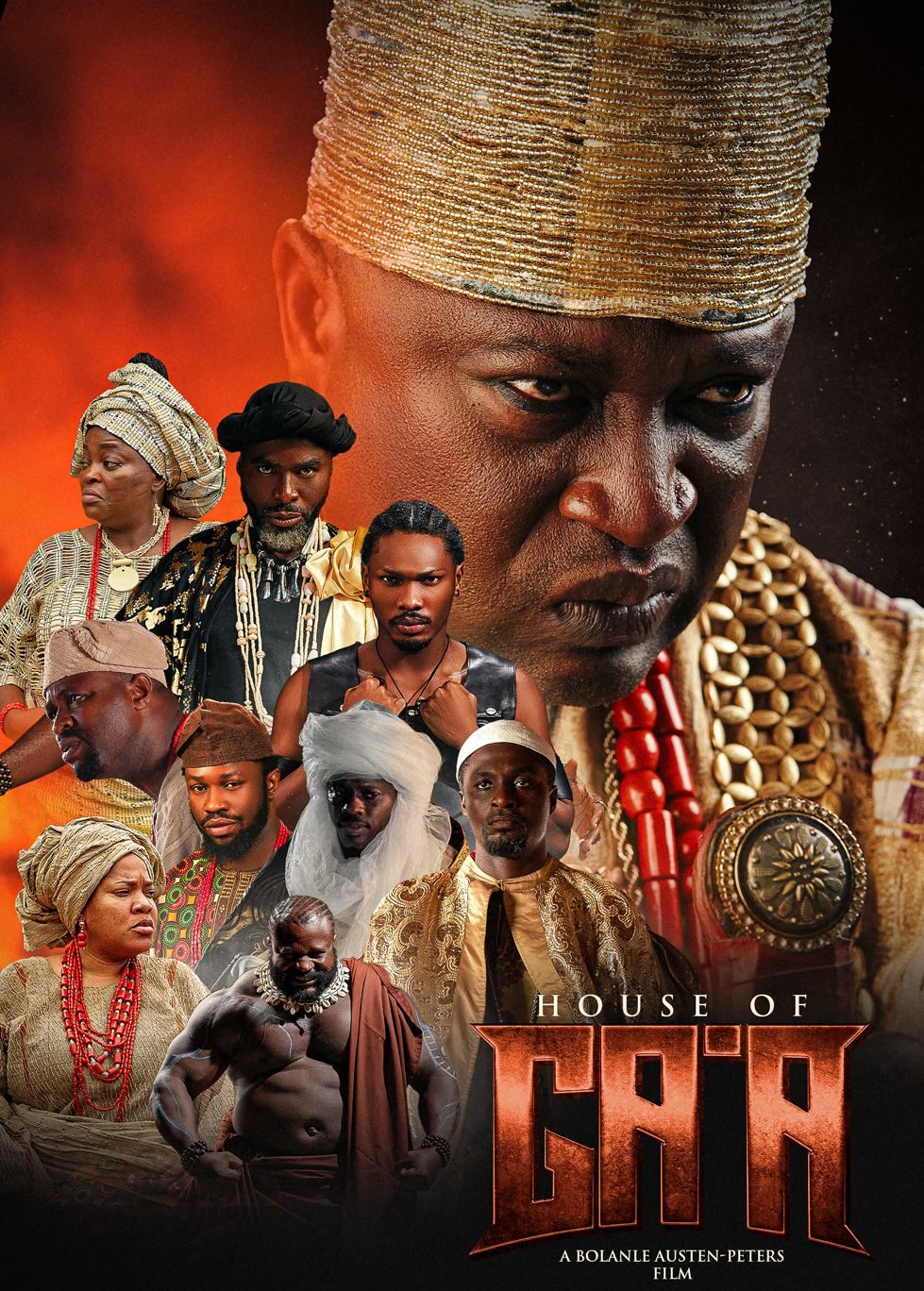ENTERTAINMENT
Nzeakor Explains How Bashorun Ga’a’s Brutal Reign Is Immortalised In The House of Ga’a

The Yoruba people have a saying. “Bi o laya ko seka sugbon bi oba ranti iku Gaa ki o so oto,” which translates as “If you are brave, venture into wickedness, but if you remember Gaa’s death, stick to the truth.”
Within four minutes of reading Bolanle Austen Peters’ House of Ga’a, we can understand why. The ruthless prime minister of 18th-century Old Oyo, played by Femi Branch, has been immortalised. Branch’s portrayal of the tyrant closely resembles Ga’a. He is a cunning, cruel, bloodthirsty, and power-hungry military mastermind.
BAP is the production entity behind some epic Yoruba biopics most recently Funmilayo Ransome Kuti. In her latest project, we are transported three centuries into the past to when Gaa had just been made Bashorun, the leader of the King Makers of Oyo. His brutish reign as Bashorun would go on to terrorize Alaafins for years to come. His unquenchable and uncontrollable thirst for power and control will stretch beyond the confines of cultural and religious propriety until it consumes him and his entire house.
House of Ga’a is a massively successful project, entering Netflix’s top 10 in multiple countries upon its release. It is easy to see why, given the setting, storyline, and all-star cast. In an interview, consulting producer Femi Adebayo describes how they had to scout around Epe to find a location where they could build their set from scratch. This kind of dedication to accurate storytelling shines through the entire film. The visual and audio quality are satisfactory. The costumes in this project are close to historical accuracy. All of these elements work together seamlessly.
Despite the cast’s diversity, the role portrayals are consistent. Femi Branch is a master at his craft. He embodies the character of Ga’a, creating a leader that viewers can not help but despise from across the screen. His facial expressions, mannerisms, and even his thick Yoruba dialect demonstrate his excellent acting abilities. The women of Ga’a all knew how to wield the sword and fight, even though their wrappers were tightly wound around their chests!
It is critical to have historical representation in our film industry. However, despite all of the hype and reverence this film has received, there was a longing for things I could not quite pinpoint on the first viewing. For some reason, I found the performance underwhelming and could not understand why. Then I went back to some movies with a similar premise, like Woman King and Jagun Jagun, and found out why. Because this is an epic action film, expect fights and gore. However, with limited modern technologies, stunts, and effects to work with, there is only so much that can be executed flawlessly. As a result, this film resembles a live-action theatrical production rather than a film.
The opening battle could have appeared less choreographed. One can see the intention and need for calculated and timed execution, but it detracts from the believability of the scene. The weapons, shields, armour, and computer-generated images looked more like cosplay.
The make-up was “outstanding” in that it stood out and did not blend seamlessly with the final production cut. The bloodied broken skin on Gaa’s elder brother’s back is visible in the scene in which he is hit with a whip, but there are no whip strokes, blood stains, or bruising on his shoulder, as would be expected when using an unevenly distributed whip. We see the writer exercising creative license when Oye flees to the Emir of Ilorin, which is historically incorrect because during the time of Ga’a, Ilorin was firmly under Oyo’s control and had no Emir.
For far too long, Africans have delegated the responsibility of documenting and preserving their rich history to foreigners. As a result, stories are inconsistent and filled with half-truths and misinformation. Finally, with Bolanle Austen-Peters taking on this divine mantle, these tantalising and gripping African stories will be told properly by Africans. She has done it before with Funmilayo Ransome Kuti, and now with House of Ga’a. This film revolves around themes that are educational, entertaining, and timely, given the current state of political events in various African countries.
The central lesson is that power is intoxicating in both the right and wrong hands. What lengths are leaders willing to go to obtain and maintain this power?
-
CRIME4 years ago
PSC Dismisses DCP Abba Kyari, To Be Prosecuted Over Alleged $1.1m Fraud
-
FEATURED4 years ago
2022 Will Brighten Possibility Of Osinbajo Presidency, Says TPP
-
FEATURED2 years ago
Buhari’s Ministers, CEOs Should Be Held Accountable Along With Emefiele, Says Timi Frank
-
BUSINESS & ECONOMY2 years ago
Oyedemi Reigns As 2023’s Real Estate Humanitarian Of The Year
-
SPORTS2 years ago
BREAKING: Jürgen Klopp Quits Liverpool As Manager At End Of Season
-
SPORTS2 years ago
Could Liverpool Afford Kylian Mbappe For €200 million? Wages, Transfer Fee
-
ENTERTAINMENT2 years ago
Veteran Nigerian Musician, Basil Akalonu Dies At 72
-
FEATURED2 years ago
Tribunal Judgement: Peter Obi Warns Of Vanishing Electoral Jurisprudence, Heads To Supreme Court
-
BUSINESS & ECONOMY2 years ago
Oyedemi Bags ‘Next Bulls Award’ As BusinessDay Celebrates Top 25 CEOs/ Business Leaders
-
FEATURED4 years ago
2023 Presidency: South East PDP Aspirants Unite, Demand Party Ticket For Zone























